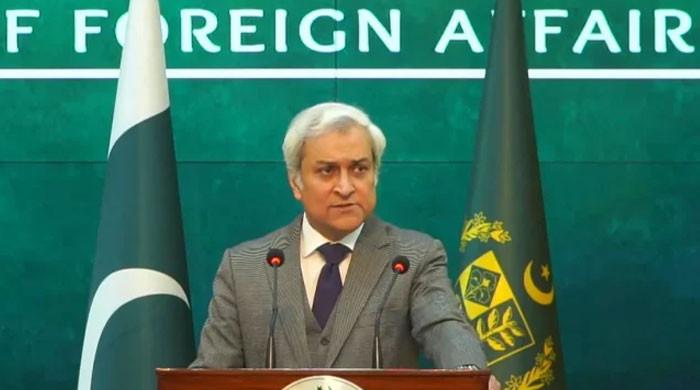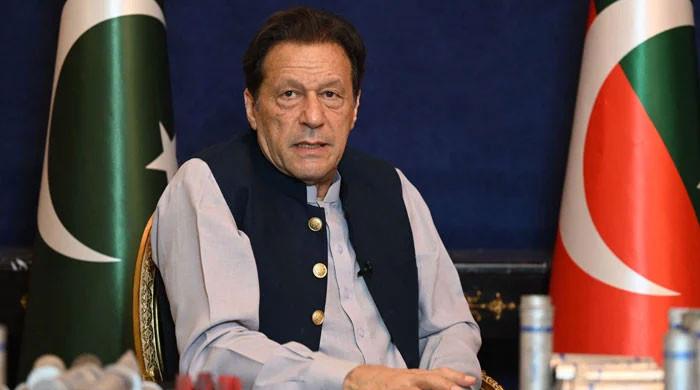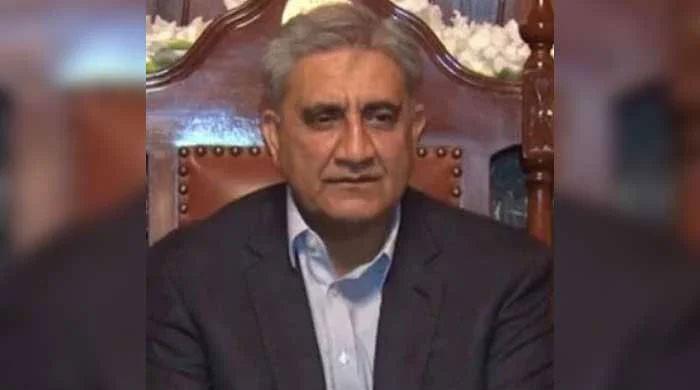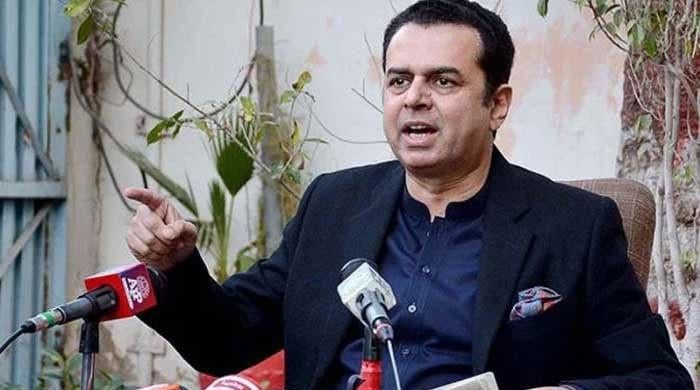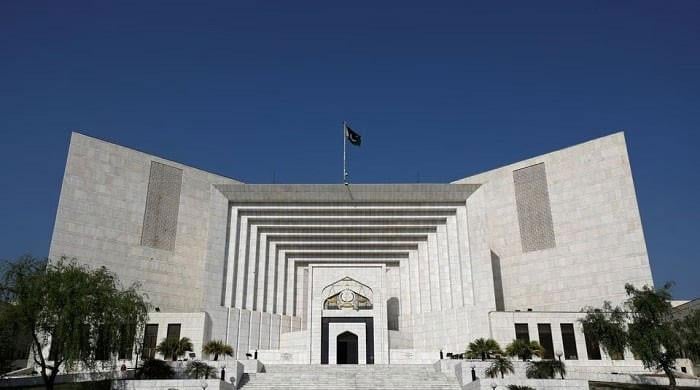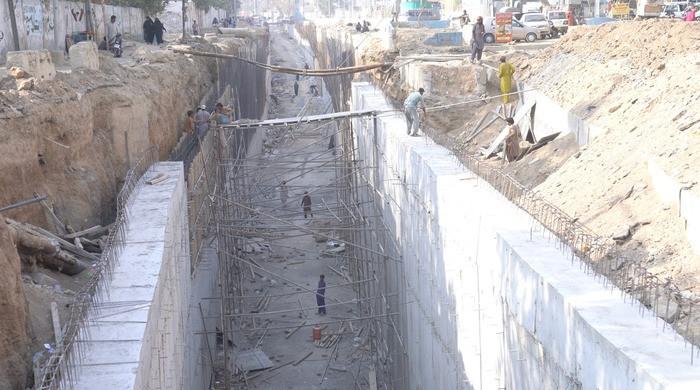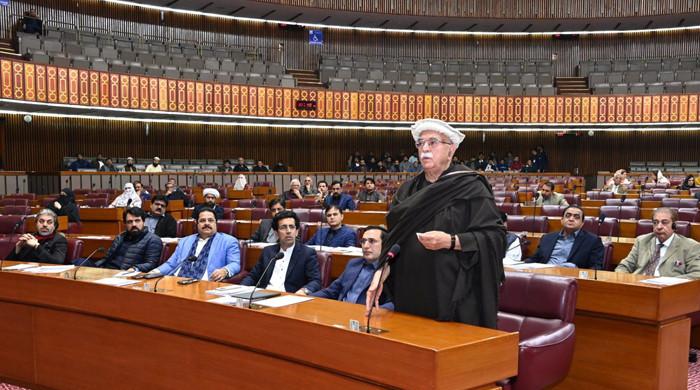Pakistan-Saudi defence pact not against any particular country: Foreign Office
Agreement reflects both nations’ resolve to enhance defence cooperation, says spokesperson
September 19, 2025
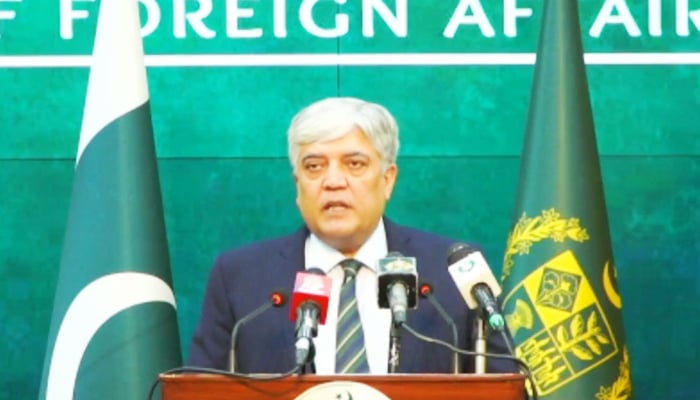
- Pact strengthens historic defence partnership.
- Accord promotes stability, peace, regional security
- OIC summit condemns Israel’s unlawful aggression.
ISLAMABAD: Foreign Office Spokesperson Ambassador Shafqat Ali Khan stated that the historic defence agreement between Pakistan and Saudi Arabia is strictly defensive and carries no implications against any other nation.
At the weekly media briefing on Friday, Khan said the leadership of both countries was committed to elevating bilateral relations to new heights.
Riyadh and Islamabad signed the mutual defence pact on September 17, significantly strengthening a decades-old security partnership, a week after Israel's strikes on Qatar upended the diplomatic calculus in the region.
"The agreement states that any aggression against either country shall be considered an aggression against both," a statement from the prime minister's office had mentioned.
The deal was signed by Saudi Arabia's Crown Prince Mohammed bin Salman and Prime Minister Shehbaz Sharif in Riyadh, where Pakistan's top official was accorded a warm welcome.
Pakistan's decades-old alliance with Saudi Arabia — the site of Islam's holiest sites — is rooted in shared faith, strategic interests, and economic interdependence.
In his press briefing, the spokesperson added that during the visit, official-level talks were held and high-level delegations participated.
The spokesperson said Pakistan and Saudi Arabia shared a unique bond of brotherhood and cooperation, with the Pakistani people holding deep reverence for the land of the Two Holy Mosques.
He noted that defence cooperation since the 1960s had remained a cornerstone of ties and the two leaders were determined to further strengthen relations.
Khan said both sides reviewed their historic and strategic relations and exchanged views on matters of mutual interest.
According to him, the pact reflects both nations’ commitment to boosting defence cooperation and ensuring joint security. He explained that aggression against one state under the agreement would be treated as aggression against both.
He emphasised that the strategic defence accord formalised a decades-long robust partnership, underlining that it would contribute significantly to regional peace, security, and stability.
OIC summit demands Israel’s accountability
Ambassador Khan also said that an emergency Islamic summit was held in Doha, Qatar, with participation from more than 50 Islamic countries, to deliberate on Israeli aggression resulting in civilian casualties.
He noted that the foreign ministers of Islamic states drafted and unanimously adopted a joint communiqué, which condemned Israel’s attacks as unlawful and unprovoked.
He said that Pakistan’s foreign minister condemned Israeli aggression at the meeting while appreciating Qatar’s mediation efforts.
Pakistan also raised the matter at the UN Human Rights Council in Geneva, calling for an urgent debate, he said.
The communiqué, he added, demanded Israel be held accountable for violations of international law, condemned atrocities against Palestinians, and reaffirmed solidarity with the Palestinian people.




